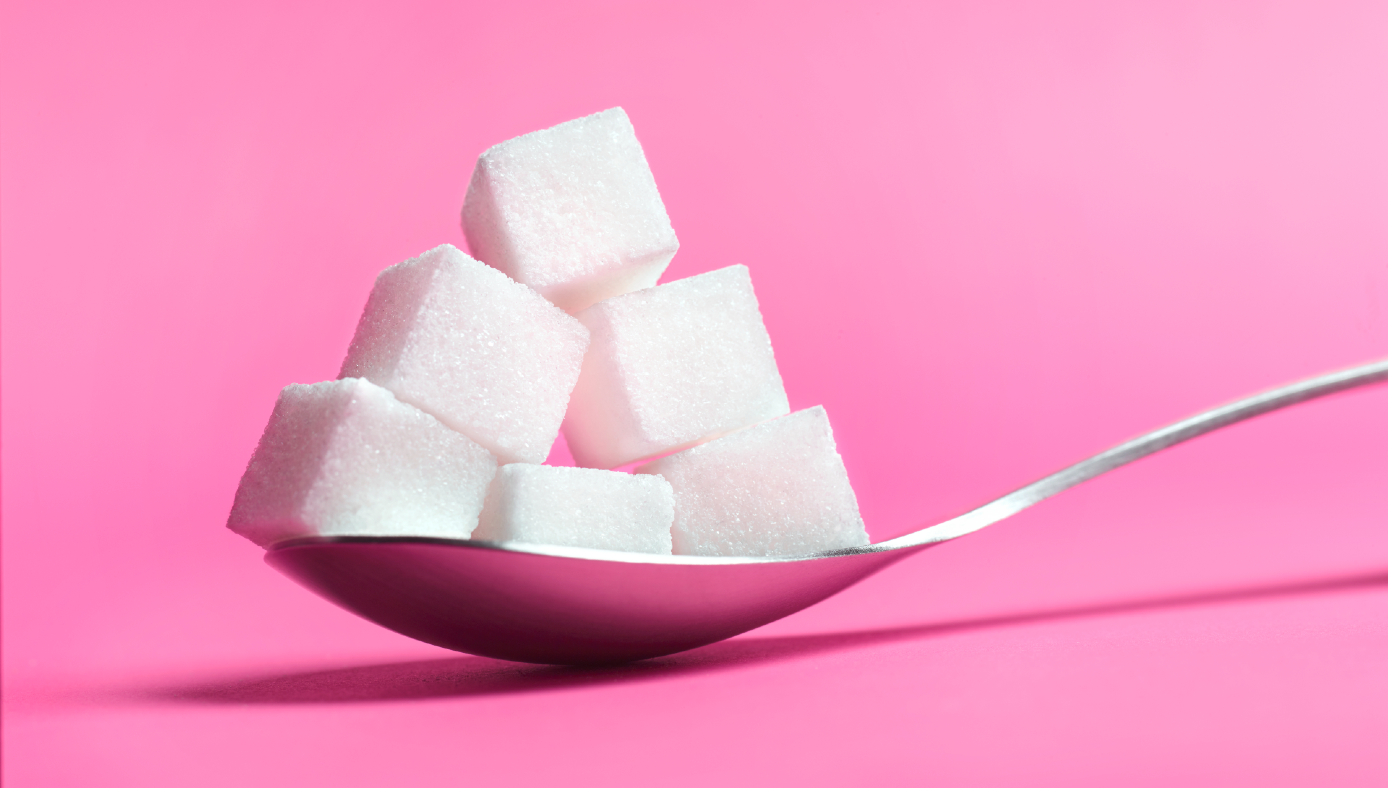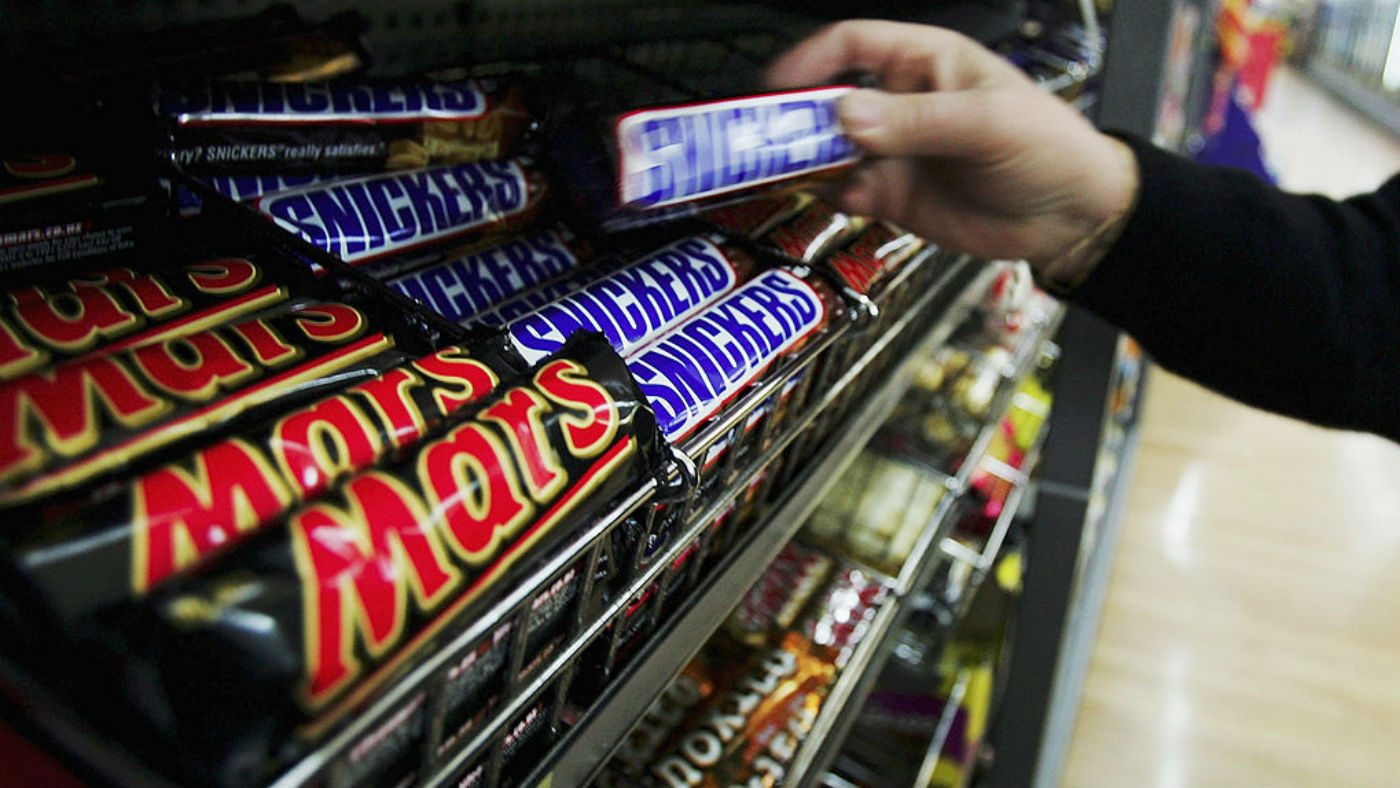Are we all addicted to sugar?
Our reliance on the sweet stuff has been compared to cocaine and gambling addictions

A free daily email with the biggest news stories of the day – and the best features from TheWeek.com
You are now subscribed
Your newsletter sign-up was successful
Wine drinkers are reeling from new research findings that show just two glasses worth can contain the total recommended daily sugar link for adults.
The Alcohol Health Alliance (AHA) analysed 30 bottles of red, white, rose, fruit and sparkling wine from the UK’s most popular brands and found that some contained up to 59g of sugar – more than in a glazed doughnut. And the lower-strength wines, which are often perceived to be a healthier choice, tended to be the most sugar-packed.
The NHS recommends that adults consume no more than 30g of “free sugars” – sugars added to food and drink, and found naturally in honey, syrup and unsweetened juices, smoothies and purees – and that sugar should make up no more than 5% of daily calorie intake.
The Week
Escape your echo chamber. Get the facts behind the news, plus analysis from multiple perspectives.

Sign up for The Week's Free Newsletters
From our morning news briefing to a weekly Good News Newsletter, get the best of The Week delivered directly to your inbox.
From our morning news briefing to a weekly Good News Newsletter, get the best of The Week delivered directly to your inbox.
‘Sugary status quo’
The official advice to consume no more than 30g of sugar – equivalent of seven sugar cubes – is “all well and good”, Holly Gabriel, nutrition manager at the Action on Sugar charity, told The Telegraph last year. But “you can buy a coffee from somewhere like Starbucks, for example, which will have double that amount of sugar in it and the lack of labelling or transparency means you don’t even know”, she continued.
The latest National Diet and Nutrition Survey found that the average Brit was consuming twice as much sugar as the maximum recommendation of 5% of total energy, with 11-18-year-olds taking in 54.9g per day.
Sugar has “found its way into virtually everything we eat”, Yoni Freedhoff, a professor of medicine at the University of Ottawa, warned back in 2014.
“Worse still, the use of sugar as a means to pacify, entertain and reward children has become normalised to the point that questioning our current sugary status quo often inspires anger and outrage,” said Freedhoff. “We need to de-normalise our new sugary normal and re-relegate sugar to the role of occasional treat rather than its current role of everyday, any time, crutch.”
A free daily email with the biggest news stories of the day – and the best features from TheWeek.com
Other experts have also warned of a sugar addiction crisis in the UK and many other countries worldwide.
A review published in the British Journal of Sports Medicine in 2017 even compared sugar addiction to cocaine addiction. The researchers pointed out that sugar, like cocaine and opium, is refined from plants to yield pure white crystals, a process that they said “significantly adds to its addictive properties”.
The claims sparked what The Guardian described as “a furious backlash”, with many other experts dismissing the alleged link as “absurd”. But the study’s co-author, cardiovascular research scientist James J. DiNicolantonio, told the paper that experiments on mice suggested that sugar was “actually more addictive than even cocaine”.
“Sugar is pretty much probably the most consumed addictive substance around the world and it is wreaking havoc on our health,” he said.
Impact on brain
Other studies have suggested that addiction to sugary or fatty foods is a behavioural disorder that can be categorised alongside conditions such as gambling addiction.
Research led by Edinburgh University scientists in 2014 found that “people can become addicted to eating for its own sake but not to consuming specific foods such as those high in sugar”.
All the same, sugar’s impact on the brain is well-documented. “Brain scan studies show that fructose affects the dopamine system, a messenger centre in the brain that controls how we experience pleasure,” The New York Times explained. “Eating lots of added sugar can create changes in the brain similar to those found in people who are addicted to cocaine and alcohol, and it’s one reason why so many of us find ourselves craving sweets.”
Some people have reported experiencing negative side effects, including headaches, tiredness and mood changes, when attempting to reduce their sugar intake. The reason for such side effects is “currently poorly understood”, wrote James Brown, a biology and biomedical science professor at Birmingham's Aston University, in an article on The Conversation. “But it's likely these symptoms relate to how the brain reacts when exposed to sugary foods – and the biology of ‘reward’.”
Sugar tax proposals
Although sugar consumption is continuing to soar, the amount of sugary soft drinks bought in the UK has fallen in recent years. Research published by the British Medical Journal last year linked the decline to the introduction of a tiered sugar-sweetened beverages (SSBs) tax on drinks containing more than 8g of sugar.
The Obesity Health Alliance reported in 2020 that since the tax had been introduced two years earlier, sugar levels in lemonades, colas and other soft drinks had fallen by an average of 44% since 2015, as many drinks makers adapted recipes in a bid to avoid the tax.
Similar sugar taxes designed to improve public health are now being considered by ministers off the back of the government-commissioned National Food Strategy. The independent review, published last July, recommended the introduction of a levy of £3 a kilo on sugar sold wholesale for use in processed food, restaurants and catering, “which it says would be a world first”, The Guardian reported.
“The Covid-19 pandemic has provided a painful reality check,” wrote the review’s authors. “There is widespread recognition that we need to change our national diet as a matter of urgency.”
Kate Samuelson is The Week's former newsletter editor. She was also a regular guest on award-winning podcast The Week Unwrapped. Kate's career as a journalist began on the MailOnline graduate training scheme, which involved stints as a reporter at the South West News Service's office in Cambridge and the Liverpool Echo. She moved from MailOnline to Time magazine's satellite office in London, where she covered current affairs and culture for both the print mag and website. Before joining The Week, Kate worked at ActionAid UK, where she led the planning and delivery of all content gathering trips, from Bangladesh to Brazil. She is passionate about women's rights and using her skills as a journalist to highlight underrepresented communities. Alongside her staff roles, Kate has written for various magazines and newspapers including Stylist, Metro.co.uk, The Guardian and the i news site. She is also the founder and editor of Cheapskate London, an award-winning weekly newsletter that curates the best free events with the aim of making the capital more accessible.
-
 6 of the world’s most accessible destinations
6 of the world’s most accessible destinationsThe Week Recommends Experience all of Berlin, Singapore and Sydney
-
 How the FCC’s ‘equal time’ rule works
How the FCC’s ‘equal time’ rule worksIn the Spotlight The law is at the heart of the Colbert-CBS conflict
-
 What is the endgame in the DHS shutdown?
What is the endgame in the DHS shutdown?Today’s Big Question Democrats want to rein in ICE’s immigration crackdown
